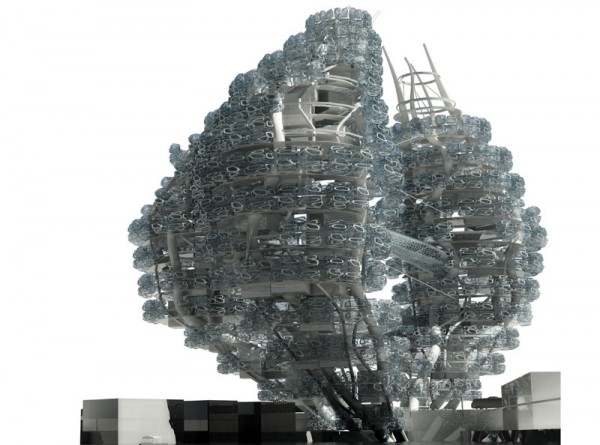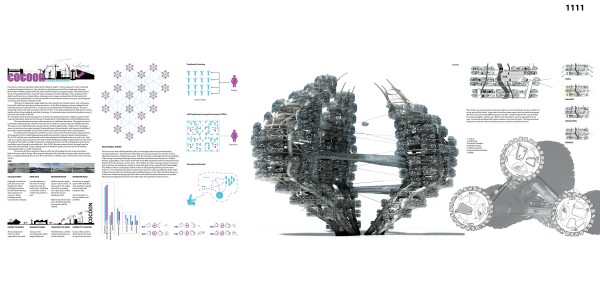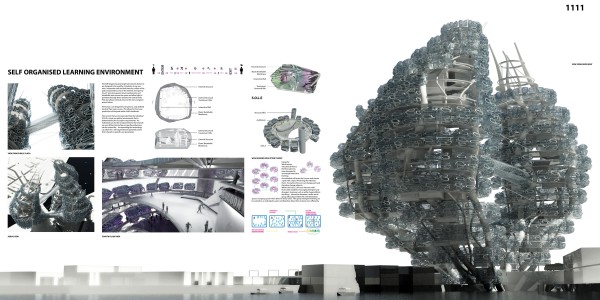Finalist
2011 Skyscraper Competition
Ben Danks, Mark Ferguson, Adam Blaney, Aaron Jones
United Kingdom
How do you evolve an education system that is failing its pupils? Cocoon proposes to start a teaching revolution through architecture. Over the last two hundred years the UK has relied upon the same Bismarckian methods, taught within the same untailored spaces, to educate pupils. This old fashioned structure has failed to keep in step with massive changes to modern lifestyles. The emergence of the digital world has led to a cultural reform, allowing access to types and quantities of information that were previously unattainable. Currently, schools fail to harness these immense resources, restricting their teaching to the educator, textbook model.
The emergent learning network proposes a revolution in teaching techniques, utilizing a system of self organized education, based on the theories of Sugata Mitra, Sir Ken Robinson and Konrad Waschsmann. The network proposes a future without teachers or traditional class rooms. The pupils are part of constantly morphing groups of four or five and are set tasks to research using any available resources. The internet is provided along with a ‘granny cloud’ and other digital media. Studies show that group access to resources encourages emergent learning between the participants, and improves the ability of the pupil to retain knowledge. Exam results improve along with far greater levels of participation.
To cater for this new education method, Cocoon consists of a network of towers housing clusters of thousands of S.O.L.E.s (Self-Organised Learning Environments) in the city’s derelict industrial spine. The S.O.L.E.s will be mass manufactured in the empty dockyard and floated up the river to the site. Each S.O.L.E. is a generic space, housed on the exterior of the building, providing an ideal learning environment. A transparent skin allows sunlight to penetrate, whilst giving views over the ecology below, and natural ventilation occurs through a permeable skin. Each S.O.L.E. becomes personal when the pupil uses the interactive walls provided. Larger capacity pods and breakout spaces sit in the core of the building exposing the pupils to a wider social scene.
Cocoon will be an education beacon within the UK, leading the path to learning reform. Both its theories and its design will be exported through Hull’s redundant transport and communication links. In rapidly expanding cities all over the world Cocoon will help create a twenty first century learning system.

















